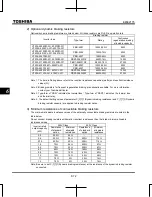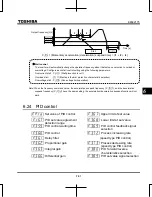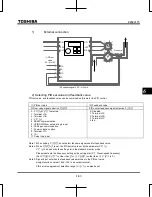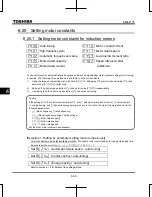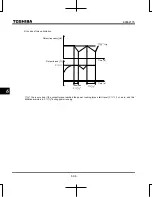
E6582175
F-85
6
f363
(I-gain adjustment parameter)
This parameter adjusts the integral gain level during PID control. Any remaining deviations (residual
deviation offset) during proportional action are cleared to zero.
A larger I-gain adjustment value reduces residual deviations. Too large an adjustment value, however,
results in an unstable event such as hunting.
●
Assign function number 52 (PID integral/derivative clear) to an input terminal. It is possible to calculate
integral/derivative amounts always as 0 (zero) while the input terminal is ON.
f366
(D-gain adjustment parameter)
This parameter adjusts the differential gain level during PID control. This gain increases the speed of
response to a rapid change in deviation (difference between the PID set value and the feedback value).
Note that setting the gain beyond necessity may cause fluctuations in output frequency, and thus
operation to become unstable.
●
Assign function number 52 (PID integral/derivative clear) to an input terminal, and it is possible to
calculate integral/derivative amounts always as 0 (zero) while the input terminal is ON,.
(
f363
=
Large gain)
(
f363
=
Small gain)
PID set value
Feedback value
Residual deviation
Time
High differential gain
Low differential gain
Previous deviation-current deviation
Feedback value
Time
Содержание TOSVERT VF-S15 series
Страница 394: ......


